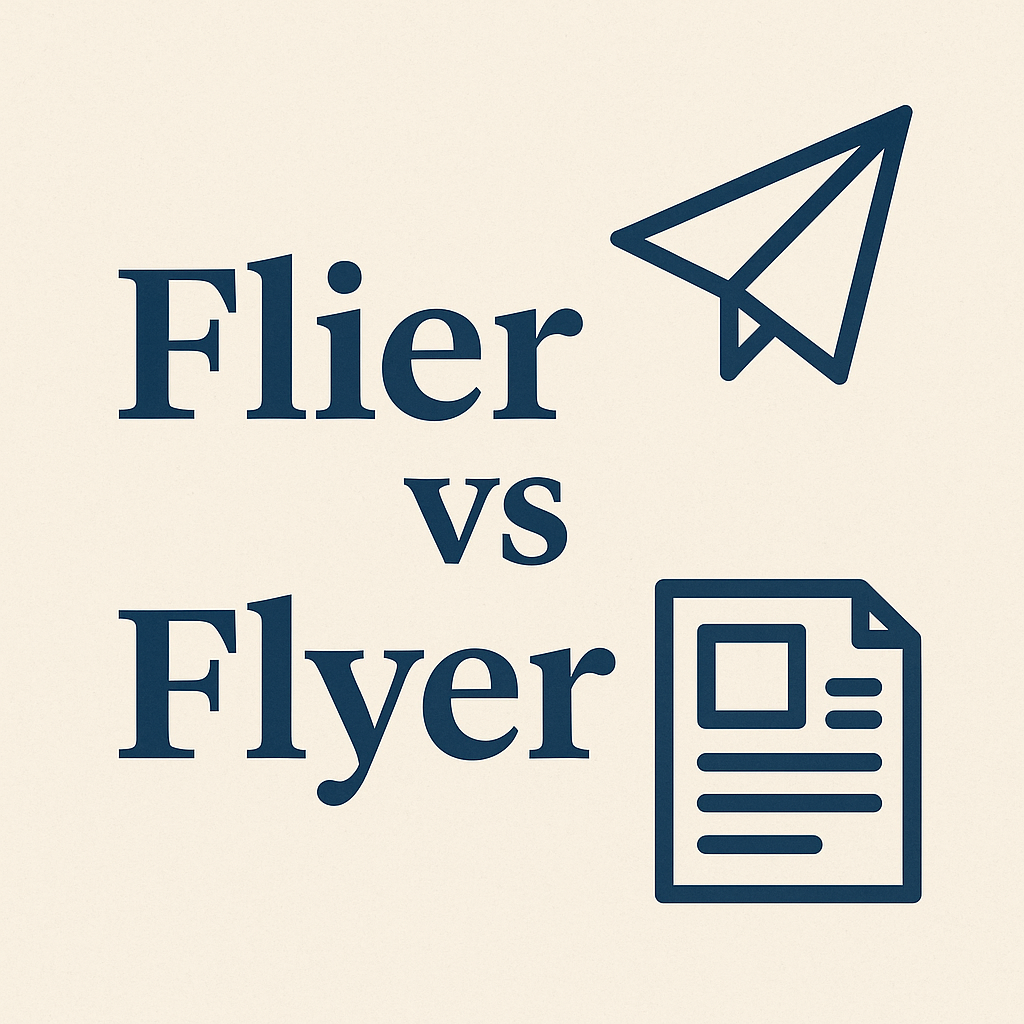Flier vs Flyer

If you’ve ever had to design or distribute a promotional handout, you’ve probably paused over the spelling: is it flier vs flyer? Both spellings exist and sound identical, which makes it easy to confuse them. But are they completely interchangeable?
The short answer: “flyer” is more commonly accepted today, especially in American English, but “flier” isn’t incorrect. The two forms have evolved over time, with slight preferences depending on context, style guides, and region.
In this article, we’ll break down the key differences between flier vs flyer, look at how they’re used in real life, identify common mistakes, and offer simple memory tips to help you confidently choose the right word whether you’re writing about airline passengers or advertising materials.
Grammatical Explanation of flier vs flyer
The distinction between flier vs flyer is subtle and mostly stylistic, though there are some contextual preferences:
- Flyer (noun) is the more modern and widely accepted spelling, especially in American English.
- It refers to a printed handout, promotional leaflet, or someone who flies.
- Example: They handed out flyers for the concert.
- Flier is an older spelling and still used by some style guides (notably the Associated Press (AP)) when referring to people who fly, particularly air travelers.
- Example: Frequent fliers get travel rewards.
However, most modern style guides, like the Oxford English Dictionary and Chicago Manual of Style, prefer “flyer” for all uses.
So in the flier vs flyer debate:
- Flyer = most common for handouts and airline passengers.
- Flier = still accepted for air travelers in specific contexts (especially journalism).
Real-Life Examples of flier vs flyer
Correct Usage of “Flyer”:
- She designed a beautiful flyer for the school play.
- Download the event flyer from the website.
- He’s a frequent flyer with Delta Airlines.
Correct Usage of “Flier”:
- The AP Stylebook recommends “flier” for airline passengers.
- Only frequent fliers qualify for the loyalty program.
Incorrect Usage:
- I printed 100 fliers for the church program. (Though still technically acceptable, “flyers” is preferred.)
- He is an experienced flyer of remote-controlled planes. (Awkward; “pilot” might be clearer.)
Today, flyer has become the default spelling, especially for printed materials. However, the flier vs flyer choice may still depend on industry standards or style guides.
Common Mistakes
A common mistake is using “flier” when referring to a promotional leaflet, especially in American English. While it’s not grammatically wrong, “flyer” is far more recognized and preferred in that context.
Another mistake is being inconsistent with the spelling in the same document:
- Incorrect: I emailed the flier and also printed some flyers.
- Correct: I emailed the flyer and printed more flyers.
Writers sometimes assume one is British and the other is American but both are used across English varieties, with flyer having the upper hand globally.
To avoid confusion in the flier vs flyer dilemma, choose one spelling based on your audience or follow a specific style guide (e.g., AP for “flier,” most others for “flyer”).
For more grammatical tips in our blog Spelling Confusion Grammar/Usage Confusion
Memory Tips
Here’s how to remember the difference in flier vs flyer:
- Flyer = Handout or Passenger
Tip: “Flyer” has a “y” like “you” hand out a flyer.
Mnemonic: Use “flyer” when it’s paper or promotional. - Flier = AP style for person who flies
Tip: “Flier” rhymes with “higher” — like someone flying higher in the sky.
If you’re unsure and not following AP style, flyer is your safest choice. It’s recognized and accepted in almost every setting, from airlines to marketing materials.
Once you link the y in flyer with you and your materials, the decision in the flier vs flyer question becomes much easier.
Conclusion
Both flier and flyer are correct spellings, but flyer is more commonly used today, especially for printed materials and air travelers. The Associated Press still prefers “flier” for passengers, but most other style guides and dictionaries favor “flyer” for all meanings.
To avoid confusion, pick one spelling and stick with it especially in professional writing. Learn more about style preferences from this AP vs Chicago comparison.